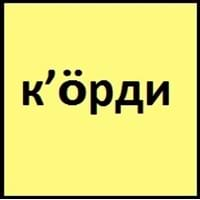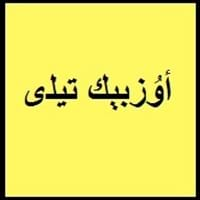Kurdish vs Uzbek
Countries
Iraq, Kurdistan
Turkey, Uzbekistan
National Language
Azerbaijan, Georgia, Iran, Iraq, Syria, Turkey
Afganistan, China, Kazakhstan, Kyrgyzstan, Russia, Tajikistan, Turkmenistan, Uzbekistan
Second Language
Not spoken in any of the countries
Not spoken in any of the countries
Speaking Continents
Middle East
Middle East
Minority Language
Not spoken in any of the countries
Not spoken in any of the countries
Regulated By
Not Available
Not Available
Interesting Facts
- The vocabulary in Kurdish is of Iranian origin.
- In the middle East, Kurdish is the fourth largest ethnic group.
- Uzbek is officially written in the Latin script, but many people still use Cyrillic script.
- In Uzbek language, there are many loanwords from Russian, Arabic and Persian.
Similar To
Farsi Language
Kazakh and Uyghur Languages
Derived From
Not Available
Not Available
Alphabets in
Kurdish-Alphabets.jpg#200
Uzbek-Alphabets.jpg#200
Scripts
Arabic, Cyrillic, Latin
Arabic, Cyrillic, Latin
Writing Direction
Right-To-Left, Horizontal
Not Available
How Are You?
Tu çawa yî?
Qalay siz?
Good Night
Şev xweş
Hayirli tun
Good Evening
Evare baş
Hayirli kech
Good Afternoon
Nee-wa-rowt bash
Hayirli kun
Good Morning
Bayanit bash
Hayirli tong
I Love You
Ez te hez dikem
Sizni sevaman
Excuse Me
Bê zehmet
Iltimos! Menga qarang
Dialect 1
Northern Kurdish
Tashkent
Where They Speak
northern Iraq, northern Syria, northwest Iran, southeast Turkey
Not Available
How Many People Speak
Not Available
Dialect 2
Central Kurdish
Afghan
Where They Speak
Iraq, Kurdistan Province of western Iran
Not Available
How Many People Speak
Not Available
Dialect 3
Southern Kurdish
Ferghana
Where They Speak
Eastern Iraq
Not Available
How Many People Speak
Not Available
Native Name
Kurdí / کوردی / к’öрди
أۇزبېك ﺗﻴﻠی o'zbek tili ўзбек тили (o‘zbek tili)
Alternative Names
Not Available
Annamese, Ching, Gin, Jing, Kinh, Viet
French Name
kurde
ouszbek
German Name
Kurdisch
Usbekisch
Pronunciation
Not Available
Not Available
Origin
16th century CE
9th–12th centuries AD
Language Family
Indo-European Family
Turkic Family
Subgroup
Indo-Iranian
Turkic
Branch
Not Available
Southestern(Chagatai)
Early Forms
Not Available
Chagatay
Standard Forms
Kurdish
Uzbek
Language Position
Not Available
Signed Forms
Not Available
Not Available
Scope
Macrolanguage
Macrolanguage
ISO 639 6
Not Available
Not Available
Glottocode
kurd1259
uzbe1247
Linguasphere
58-AAA-a
No data available
Language Type
Living
Living
Language Linguistic Typology
Subject-Object-Verb
Not Available
Language Morphological Typology
Not Available
Not Available
Kurdish and Uzbek Language History
Comparison of Kurdish vs Uzbek language history gives us differences between origin of Kurdish and Uzbek language. History of Kurdish language states that this language originated in 16th century CE whereas history of Uzbek language states that this language originated in 9th–12th centuries AD. Family of the language also forms a part of history of that language. More on language families of these languages can be found out on Kurdish and Uzbek Language History.
Kurdish and Uzbek Greetings
People around the world use different languages to interact with each other. Even if we cannot communicate fluently in any language, it will always be beneficial to know about some of the common greetings or phrases from that language. This is where Kurdish and Uzbek greetings helps you to understand basic phrases in Kurdish and Uzbek language. Kurdish word for "Hello" is Silaw or Uzbek word for "Thank You" is Rakhmat. Find more of such common Kurdish Greetings and Uzbek Greetings. These greetings will help you to be more confident when conversing with natives that speak these languages.
Kurdish vs Uzbek Difficulty
The Kurdish vs Uzbek difficulty level basically depends on the number of Kurdish Alphabets and Uzbek Alphabets. Also the number of vowels and consonants in the language plays an important role in deciding the difficulty level of that language. The important points to be considered when we compare Kurdish and Uzbek are the origin, speaking countries, language family, different greetings, speaking population of these languages. Want to know in Kurdish and Uzbek, which language is harder to learn? Time required to learn Kurdish is 4 weeks while to learn Uzbek time required is 44 weeks.





